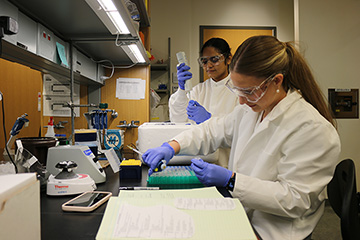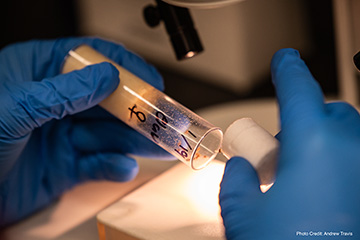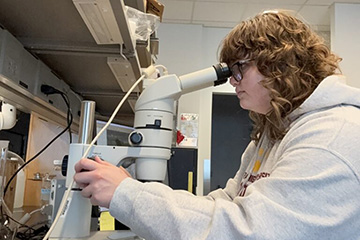CMU Department of Biology launches new field course for ecology, evolution and conservation students
This fall,
The idea for the course emerged after EEC faculty recognized that many students were completing their degree without ever getting into the field to practice essential research skills. Students themselves voiced a desire for more outdoor, field-based opportunities, noting that while classroom learning provided theory, they wanted practical experiences that mirrored the work of professional ecologists.
“Few institutions nationwide offer a general field techniques course in ecology,” said Dr. Scott McNaught. “Most field stations and programs focus on specialized habitats or organism groups, but we wanted something broader, something that would prepare our students for a wide range of future opportunities.”
The course, created by Dr. Dave Zanatta and Dr. Scott McNaught, will immerse students in diverse habitats including streams, lakes, wetlands, forests, and meadows. Using established scientific methods, students will sample plants and invertebrates, survey birds by sight and call, and observe salamanders using cover boards. Guest instructors with specialized training and certification will also join the class to demonstrate advanced techniques for capturing fish, birds, reptiles, and amphibians.
By providing this breadth of experiences, the EEC Field Course serves as a gateway into field research. Faculty expect it to not only strengthen students’ technical skills but also inspire them to pursue advanced courses in ecology, conservation, and environmental science.
“This is a course we believe students will find both exciting and valuable,” Zanatta and McNaught said. “It’s designed to be an introduction that sparks curiosity, builds confidence, and prepares students for more specialized upper-level work.”
Looking ahead, the Department of Biology plans to make the EEC Field Course a required component of the Biology–Ecology, Evolution, and Conservation degree. By doing so, CMU hopes to ensure every graduate has both the knowledge and the field experience needed to succeed in scientific research, conservation efforts, and environmental careers.




